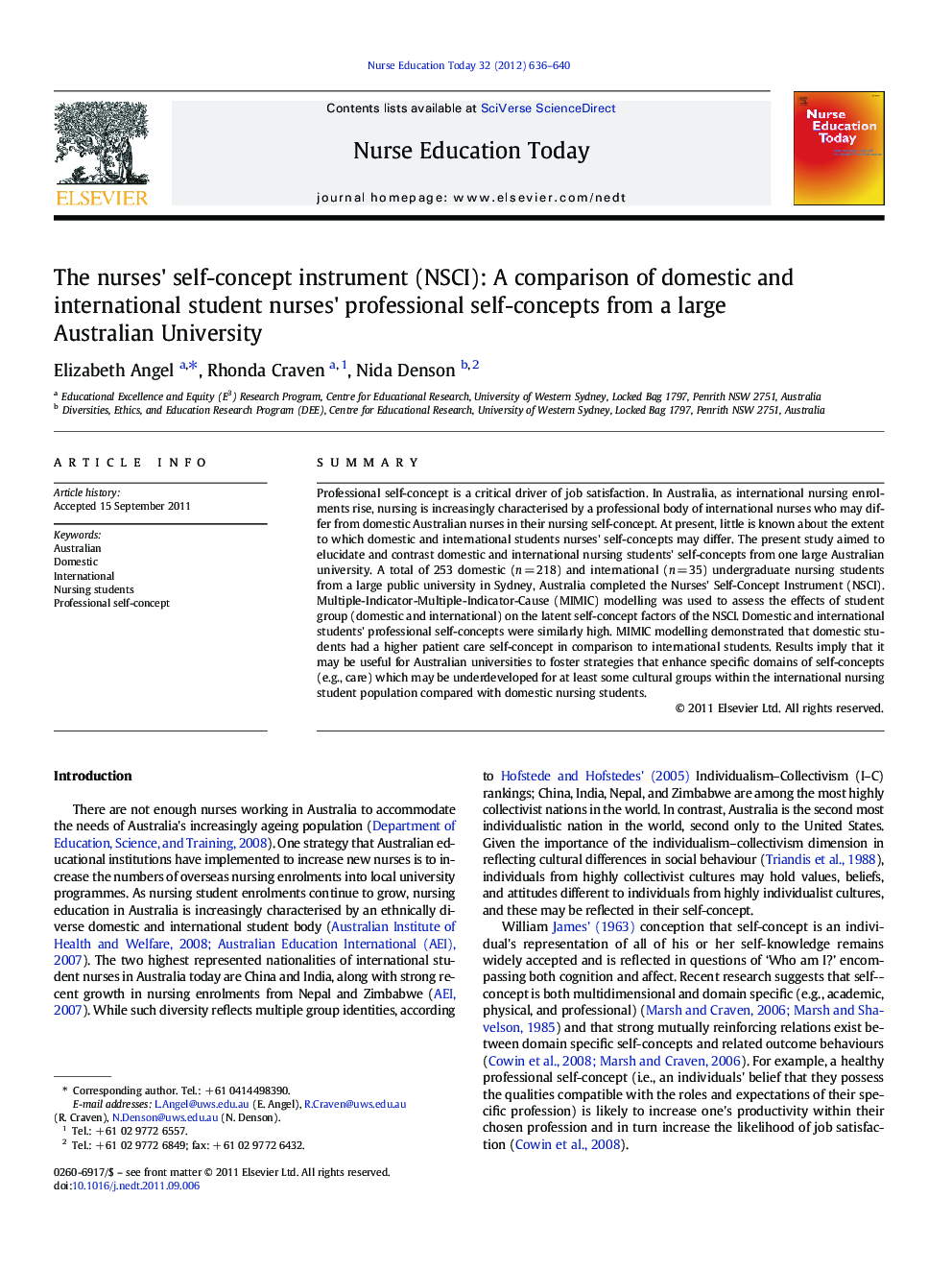| Article ID | Journal | Published Year | Pages | File Type |
|---|---|---|---|---|
| 368552 | Nurse Education Today | 2012 | 5 Pages |
SummaryProfessional self-concept is a critical driver of job satisfaction. In Australia, as international nursing enrolments rise, nursing is increasingly characterised by a professional body of international nurses who may differ from domestic Australian nurses in their nursing self-concept. At present, little is known about the extent to which domestic and international students nurses' self-concepts may differ. The present study aimed to elucidate and contrast domestic and international nursing students' self-concepts from one large Australian university. A total of 253 domestic (n = 218) and international (n = 35) undergraduate nursing students from a large public university in Sydney, Australia completed the Nurses' Self-Concept Instrument (NSCI). Multiple-Indicator-Multiple-Indicator-Cause (MIMIC) modelling was used to assess the effects of student group (domestic and international) on the latent self-concept factors of the NSCI. Domestic and international students' professional self-concepts were similarly high. MIMIC modelling demonstrated that domestic students had a higher patient care self-concept in comparison to international students. Results imply that it may be useful for Australian universities to foster strategies that enhance specific domains of self-concepts (e.g., care) which may be underdeveloped for at least some cultural groups within the international nursing student population compared with domestic nursing students.
